The built environment is inescapably intertwined with political discourse, playing a crucial role in relevant economic, social, and environmental issues.
First and foremost, employing over 12 million people, the property sector contributes £1.7 billion annually to UK GDP. Ensuring, therefore, that the industry thrives is an important marker of economic growth.
From a social perspective, the nationwide shortage of housing – and particularly affordable housing – is a pressing crisis.
The Government itself estimates that 300,000 new homes are needed per year to keep pace with demand, with the lack of supply a key factor in driving up both house prices and rents over recent decades.
On the environment: in the UK, the built environment is responsible for approximately 23% of all carbon emissions.
But through the Nationally Determined Contribution and the amended Climate Change Act 2008, the UK has committed to reaching net zero carbon by 2050.
With so much at stake, the real estate sector invariably forms a critical part of political agendas, not least in the manifestos and campaigns which precede a general election.
Naturally, then, with an election likely to take place late next year – and no later than January 2025 – and the political battlelines being drawn, we must consider how both major parties are positioning themselves when it comes to the future of the built environment and how they will address the economic, social and environmental challenges that lie ahead.
Planning reforms and housebuilding commitments
“If the Tories won’t build, if the Tories can’t build, then we will.” Those were the words of Rachel Reeves, shadow chancellor, during the Labour Party Conference.
It came amidst a speech that put housebuilding and infrastructure projects at the heart of Labour’s election campaign, with the promise to “get Britain building again” underlining the opposition party’s sense that this is a weakness to expose within the Conservative government.
This approach is understandable. Around 12 months ago, Prime Minister Rishi Sunak made the decision to abandon housebuilding targets to stave off a back-bench rebellion. Added to that, the announcement was recently made that the ill-fated HS2 project would now end at Birmingham, no longer reaching the North of England. Moreover, long-awaited reforms to the UK’s planning system have also changed shape multiple times over the past two years – but housing secretary Michael Gove’ Levelling Up and Regeneration Bill has now gained royal assent.
Indeed, planning is a critical issue affecting housebuilding activity in the UK. Labour has said it will “tackle head-on the obstacles presented by our antiquated planning system”.
It is a system that has not undergone major reforms since 1947, so it is only right that both Labour and Conservatives focus on streamlining the planning process, making it easier to release more land for housing and to obtain planning permission.
Developers will no doubt welcome a much-needed modernisation of the planning system.
Reintroducing housebuilding targets would also mark a positive step, applying pressure to both the public and private sectors to ensure more residential developments are undertaken.
Clearly, we can expect planning and housebuilding – two topics that are inevitably interlocked – to be a major political talking point over the coming 12 months.
Stakeholders from across the world of real estate will watch on with interest; if there is a notable uptick in property developments, we could see an influx of private investment, both from domestic and international investors, into the UK property sector.
Green commitments come under the microscope
One of the defining features of Conservative policies in recent months has been a backtracking on green policies.
When the party secured a by-election victory in Uxbridge and South Ruislip earlier this year, the Tories that the anti-pollution strategy (specifically the expansion of the ULEZ) of Labour’s Sadiq Khan, Mayor of London, was a key factor.
Since then, it seems Sunak et al have decided that shifting away from sustainability as a focus for the party was a way of luring more voters to their cause.
The PM recently said that while the 2050 net zero goal remains, a change in approach was required when it comes to green policies, lest the Government “risk losing the consent of the British people”.
Changes in policies have materialised in recent months. For instance, a ban on the sale of new petrol and diesel cars in the UK has been pushed back by five years to 2035.
Also, new Energy Performance Certificate rules for landlords – which would have seen most need to improve the energy efficiency of their properties by 2025 – has now been kicked into the proverbial long grass.
Where the property sector is concerned, a clear path is needed so that developers and investors can understand how the industry will ‘go green’.
Labour has skirted around the edges of the topic thus far, but its policies on sustainability in the real estate industry may take shape in the coming months.
Clarity and certainty are needed
Ultimately, from planning reforms and housebuilding targets to carbon penalties and financial incentives, government policy is instrumental in fuelling or stymieing investment.
Investors like to know what is on the political agenda – for example, if it becomes clear that increasing housebuilding activity is a priority for Westminster’s MPs, then many will recognise that opportunities could abound from this.
But the devil, as they say, is always in the detail. Bold promises that ‘we will get Britain building’ are not enough. Clear plans for how such promises will be met are required so that investors and businesses can buy in.
From a social and economic perspective, the UK needs a thriving property sector.
The political and economic turbulence that have defined the past two years have hardly helped in this regard – and the election that looms on the horizon will ensure more upheaval in 2024.
Yet in the medium- and long-term, a fresh start in addressing challenges in the built environment is a must.
This, coupled with a sense of stability in terms of leadership and policy, will be vital in fuelling growth and prosperity in the real estate industry.
It will also ensure UK property remains a sought-after destination for global investment. For now, we will watch on with keen interest.




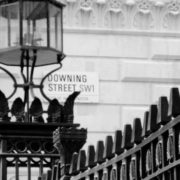
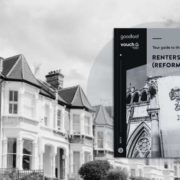


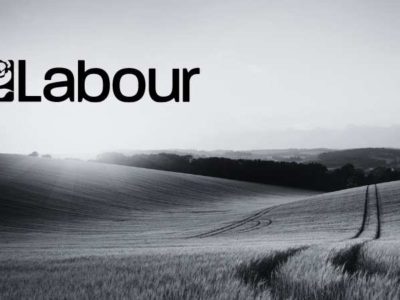

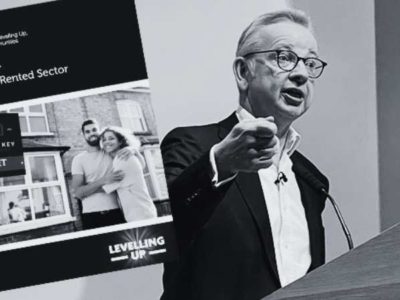



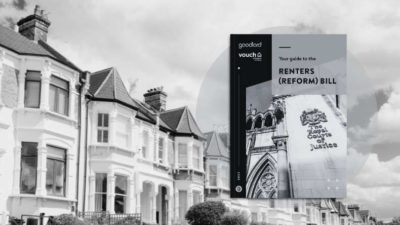






Comments